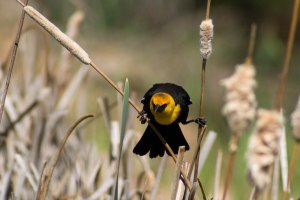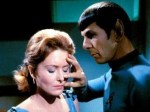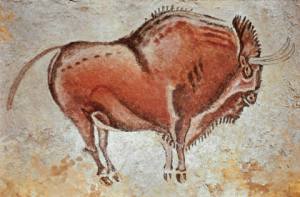Pam Lazos
Chapter Forty-Six
The day dawned bright and balmy in Houston. Bicky Coleman sat behind his antique mahogany desk, smoking a cigar and reading The Philadelphia Inquirer. Akanabi was taking less of a beating in the newspapers now that Hart was on the scene, commissioning overflights and vacuum boats, throwing all kinds of money at the situation. Maybe it would help them later when the feds and everyone else sued Akanabi out the wazoo for penalties the company didn’t deserve. After all, it had been an accident.
When Hart had called last night he babbled on and on about retiring all of Akanabi’s single-hulled ships. Bicky had humored him, but knew that suggestion would end up in the circular file.
“You want me to retire all the single-hulled ships?” Bicky had asked Hart.
“At least let’s phase them out. Fifteen to twenty percent a year.”
“Hart, my son, are you sure hypothermia hasn’t set in and affected that brain of yours?”
“It’s gonna hit you where it hurts, Bicky, but it’s the right thing to do. The river’s black like you’ve never seen. Just avoiding the devastation to wildlife should be cause enough.”
“Give me a memo. We’ll talk about it when you get back.”
Bicky had said that to shut Hart up; he had absolutely no intention of following through. Building new ships was an expensive proposition. More than half of Akanabi’s supertanker fleet were single-hulled ships, purchased in the heyday of oil drilling. To replace them all at once, even over a period of five years would cost hundreds of billions of dollars. And Bicky was loathe to spend that kind of money. Legislation would eventually force his hand, but why rush things?
The intercom buzzed and Phyllis’s voice jarred him to awareness.
“Jerry’s here.”
“Send him in.”
➣➣➣
Jerry Dixon walked in, looking grim, but impeccable. Bicky’s face was stuck in the paper so Jerry waited. Bicky had several personalities that didn’t always talk to each other, and Jerry thought it best to see which one was in residence.
Bicky looked up and smirked. “How many of those suits do you have?”
“I don’t know. How many do you have?” Jerry said, indicating Bicky’s Armani.
“You know what I mean. Do you spend the whole day ironing or change suits every ten minutes? Cause you know I’m paying you good money to keep things secure around here, so if you’re ironing….” Bicky’s smirk turned to a smile.
Jerry relaxed and sat down. “How’s Hart doing with the spill?”
Bicky studied his buffed fingernails. “Apparently something a little better than damage control. Seems he’s making friends.”
“What are the odds on the cleanup?”
“The river will survive. It’s rebounded before, as have countless of her brethren. It will do so again,” said Bicky, sounding like a Sunday morning TV evangelist.
Jerry scowled, a reflex. Akanabi could dump ten million gallons of oil in the river and Bicky would insist it was nothing.
“You have no faith, Jerry,” Bicky continued. “I’m not even sure if there’s a limit to how far you can go.”
Here we go, Jerry thought.
“Mother Nature is infinitely capable of rejuvenating herself.”
“Yeah, well, she’s not doing such a good job with the ozone layer,” Jerry replied. “I got a spot on my nose here that the doc says is pre-cancerous. Too many hours spent outside in an ozone-lite environment,” he said, rubbing his proboscis. “I’m getting it removed tomorrow.”
Bicky rubbed his own nose absently. His face bore a healthy, radiant glow that smacked of hours spent on a tanning bed. Jerry knew he kept one in an office down the hall. Some people used makeup. Bicky used processed UV light. Jerry wondered just how many of those “freckles” on Bicky’s face had their own story to tell and when they’d decide to start talking.
“Spare me the details,” Bicky said. He stood and stared out the window. “You don’t have any information yet, do you?”
Jerry shook his head, watched his boss, looking for clues.
“No. I’ve made discreet inquiries. No one saw anything.” Bicky flashed Jerry an angry look.
“The coroner says it was an accident, Bicky. Why don’t you believe that?”
“Graighton’s the only other one who knew Sonia had the report. He was at the Union Club that night. It’s only a couple miles to Sonia’s house….”
“You’re saying Graighton left the Union Club, killed Sonia and returned without the report?’ Jerry asked.
“Of course not. Graighton didn’t go himself. One of his lackeys did. You remember where we found the report? Whoever killed Sonia didn’t find what he was looking for. Maybe that’s what angered him in the first place.”
“But what would Graighton gain by killing Sonia and stealing a report he already had a copy of?”
“He was trying to get to me. Put me in my place.” Bicky sat down. “Even that doesn’t make sense.” His head fell against his chair. “Just keep looking.”
“Yeah, sure,” Jerry said.
“One more thing,” Bicky reached into the top drawer. “I want you in Philadelphia.”
“For….?”
“I got another tip.” He handed Jerry a piece of paper. “Recognize the address?” Jerry’s eyebrows shot up, but he said nothing.
“Don’t botch it this time. No commando missions. Nothing getting blown up. No one dying. Just bring me back the technology. You got it?”
Jerry nodded, a face set in stone.
“You’re sure you found out nothing else…about Sonia?” Bicky asked.
“You think I’m not doing my job, old man?” Jerry’s face remained cool and impassive.
“I think, that you’re too quick to accept the opinion of other’s. What’s that jackass coroner know?”
“She had an accident. She died. Accidents happen.”
“Accidents don’t just happen. Not to us. You should know that better than anyone, Mr. Chief of Security.”
“You’re wrong. They do. But what precipitated it? That’s the question. Perhaps she was depressed, worried about her husband, flustered. Or maybe something spooked her. Or someone.” Jerry placed his hands on the front of Bicky’s desk and leaned into it. “Came around hassling her for something she wasn’t inclined to give. She spills her drink. The floor’s wet. She takes a step. She slips. She falls. A body in motion stays in motion. She can’t stop herself from falling. She bangs her head and, is out like a light. And if the baby didn’t decide to come out at that moment, if he didn’t decide to come out upside down, what do they call it, breach? Maybe she’d be alive today. The fact is, unless you were there,” Jerry looked Bicky directly in the eye with malicious intent, “you’re never going to know.”
Bicky shuddered. After several seconds, Jerry stood up and backed away from the desk. He massaged his eyes and forehead with one hand, trying to squeeze the images out of them.
“I loved Sonia like she was my own kid. That she’s dead pains me – like you can’t even believe,” Jerry said. He turned and was gone, an exit as quick and silent as death.
Bicky let out the breath he’d been holding and pulled a silk handkerchief from his breast pocket. He wiped his face and dabbed at the moisture forming in the corner of his eyes.
So far, it had been a hell of an afternoon. He walked to the wet bar, poured himself a scotch and soda and stood at the window sipping it. The world below soothed him. He could control it simply by pulling the blind. When he finally turned away, he pulled out the bottom desk drawer. Below a stack of papers, tucked in the bottom drawer, lay the coffee-stained report. Satisfied, Bicky closed the drawer and thumbed through a stack of mail in his in-box. Phyllis had opened everything, laying it in a pile for his review except for one letter, marked personal and confidential. He ripped the envelope open and pulled out a small stack of papers.
It was a letter from Kitty’s lawyer, a Complaint for Divorce and a Postnuptial Agreement with which she proposed to divest herself of everything just to be rid of the marriage. Bicky sipped his scotch for five minutes before pulling a yellow sticky pad out of a side drawer. He placed one on top of the lawyer’s letter, wrote Forget It! in bold, black ink, and stuffed the papers back into the envelope. Then he buzzed Phyllis.
“Is Jerry still here?
“He just went down.”
“Catch him, will you, and tell him to come back up. I want him to deliver something for me. To my wife.”
to be continued. . .
to read how we got to this state of affairs jump here
copyright 2012








